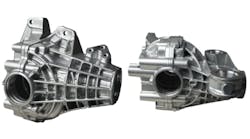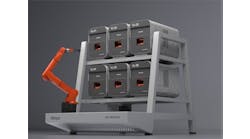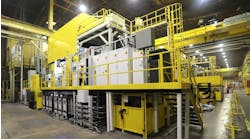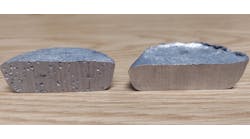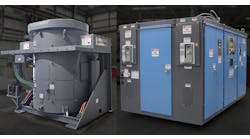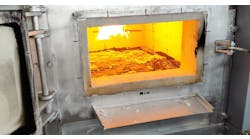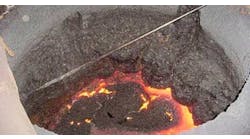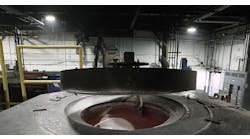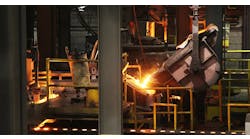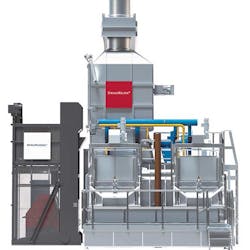An automotive aluminum diecaster in Budapest, Hungary melts up to 4,000 mt/month, so furnace efficiency is a high priority, and so is energy efficiency. Fémalk Zrt. operates StrikoWestofen melting and dosing furnaces to produce its range of diecastings, which include engine and gearbox supports, suspension components and electronic covers, and headlight and thermostat housings – and recently it engaged a local contractor to review the equipment and identify opportunities for improving performance with respect to energy consumption and sustainability targets.
First, Fémalk asked StrikoWestofen to evaluate a 12-year-old StrikoMelter shaft melting furnace in need of relining. The process is designed to conserve energy by directing hot waste gases to preheat furnace charge materials in the EtaMax shaft. But, as may be expected after years of service, mechanical and thermal stress caused by temperature deviations, charging materials, and dross, make refractory relining inevitable and necessary to maximize a furnace’s service life, to optimize melting performance, and to avoid energy losses due to refractory damage.
Based on performance tests carried out together with Fémalk prior to relining, StrikoWestofen determined energy savings of 22% could be achieved with a full relining of the furnace melting chamber, and partly cosmetic repair to the holding chamber.Further energy-saving options were carried out too, such as optimizing the melting process.
In less than four weeks, the StrikoMelter was removed, relined, re-installed, and tested under full operational conditions, and the results showed a 26% reduction in energy consumption per ton of molten aluminum, well above the target set.
“We knew that the energy-savings level estimated was based on a 50:50 ratio of ingots/returns,” recalled Bence Gölöncsèr, the diecaster’s investment project manager. “However, operating needs meant the post-refurb testing was carried out with ingots accounting for approximately 91% of charging material. Given that this should have resulted in a lower-percentage improvement – as charging with larger quantities of ‘new’ aluminum ingots consumes more energy – to have achieved savings greater than the target specified was very impressive.”
StrikoWestofen also refurbished two Westomat dosing furnaces with OEM parts rather than third-party alternatives, an approach that has been proven to reduce energy consumption by up to 50%. The developer has defined a dosing furnace relining service program that uses high-quality, precast (and pre-sintered) refractory parts; as well as improving insulation and thereby energy consumption, this approach also means relining can be carried out much more quickly. Because the precast refractory parts are pre-sintered, the heating process is accelerated once work on the furnace lining is rebuilt.
“We completed relining work on the Westomat in less than two weeks, ensuring minimal disruption for the customer. At a time when energy costs are so high, the savings generated, combined with the performance improvements delivered for the StrikoMelter, will mean that Fémalk to reduce operational costs and optimize ROI on their equipment,” StrikoWestofen vice president Holger Stephan explained.
